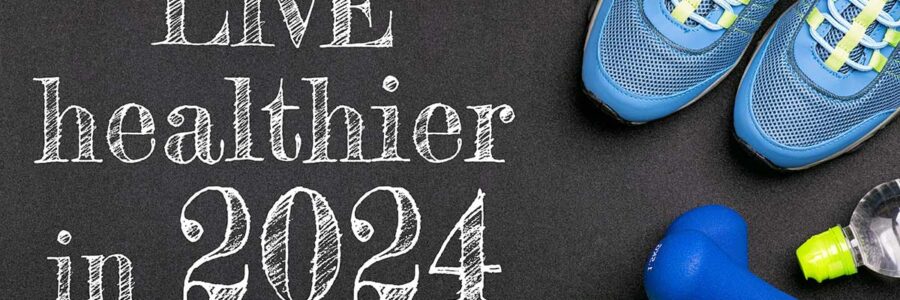In 2024, as we become increasingly aware of the impact of our daily product choices on our health and the environment, it’s important to focus on non-toxic alternatives. This article highlights five essential Non-Toxic switches you can make, improving your health and contributing to environmental sustainability.
Organic Cotton Tampons: Key Non-toxic Switches
- Health Risks of Conventional Tampons: Many standard tampons are made from rayon and non-organic cotton, often with chlorine. This process can leave harmful residues like dioxin, which is linked to reproductive issues and cancer.[1,2] The highly absorbent vaginal mucosa allows these toxins to enter the bloodstream[2] easily.
- Benefits of Organic Cotton Tampons: These are made from cotton grown without toxic pesticides and free from synthetic additives, reducing exposure to harmful chemicals and supporting sustainable farming. Organic cotton is better for soil, conserves water, and is safer for farmers.[1,2]
Edible-Quality Makeup: Non-toxic Beauty Switches
- Dangers of Chemical Makeup: Many makeup products contain harmful chemicals like parabens, phthalates, and synthetic fragrances, which can irritate the skin, disrupt hormones, and even cause cancer.[3,4]
- Advantages of Edible-Quality Makeup: This makeup uses natural, non-toxic ingredients such as coconut oil, shea butter, and natural pigments, which are safer and nourishing for the skin. Look for products with recognizable ingredients and avoid known toxins.[3,4]
Eco-Friendly Toothbrush Alternatives:
- Environmental Impact of Plastic Toothbrushes: Billions of plastic toothbrushes end up in landfills and oceans yearly, causing pollution and harm to wildlife. They are not biodegradable.[6]
- Sustainable Toothbrush Benefits: Alternatives like bamboo or boar bristle toothbrushes are biodegradable and often have antibacterial properties. They are better for the environment and offer a plastic-free brushing experience.[6,7]
Non-toxic Oral Care: Essential Switches
- Risks in Mainstream Brands: Common ingredients in many oral care products, like fluoride and titanium dioxide, can be harmful. Fluoride is a neurotoxin, and titanium dioxide has potential carcinogenic effects.[8,9]
- Benefits of Hydroxyapatite and Natural Ingredients: Skip the harmful chemicals and embrace non-toxic switches! Hydroxyapatite, a natural mineral, effectively prevents cavities and remineralizes enamel. Look for toothpaste and mouthwashes with natural flavoring agents for a safer, healthier smile..[10]
Safer Perfumes and Colognes:
- Dangers of Synthetic Fragrances: Many contain phthalates and other harmful substances that can disrupt hormones and pose health risks.[11]
- Natural Fragrance Benefits: Using essential oils as natural fragrances is safer, offering therapeutic benefits without the harmful effects of synthetic chemicals. Pure, high-quality essential oils are recommended, and patch testing is advised.[11]
In summary, making these Non-Toxic switches in everyday products like tampons, makeup, toothbrushes, toothpaste, and perfumes enhances personal health and supports environmental sustainability. Choosing products that align with health goals and values is crucial, ensuring each step towards a toxin-free lifestyle contributes to better health and a cleaner planet.
References:
- White, Sally S, and Linda S Birnbaum. “An overview of the effects of dioxins and dioxin-like compounds on vertebrates, as documented in human and ecological epidemiology.” Journal of environmental science and health. Part C, Environmental
- carcinogenesis & ecotoxicology reviews vol. 27,4 (2009): 197-211. doi:10.1080/10590500903310047
- Nicole, Wendee. “A question for women’s health: chemicals in feminine hygiene products and personal lubricants.” Environmental Health Perspectives vol. 122,3 (2014): A70-5. doi:10.1289/ehp.122-A70
- Panico, A. et al. “Skin safety and health prevention: an overview of chemicals in cosmetic products.” Journal of Preventive Medicine and Hygiene vol. 60,1 E50-E57. 29 Mar. 2019, doi:10.15167/2421-4248/jpmh2019.60.1.1080
- Kazemi, Zahra, et al. “Evaluation of pollutants in perfumes, colognes, and health effects on the consumer: a systematic review.” Journal of Environmental Health Science & engineering vol. 20,1 589-598. 3 Feb. 2022, doi:10.1007/s40201-021-00783-x
- Anderson, Stacey E, and B Jean Meade. “Potential health effects associated with dermal exposure to occupational chemicals.” Environmental Health Insights vol. 8, Suppl 1 51-62. 17 Dec. 2014, doi:10.4137/EHI.S15258
- Borunda, Alejandra. “Your Plastic Toothbrush Is a Bigger Problem than You Realize.” Environment, National Geographic, 31 Aug. 2022, www.nationalgeographic.com/environment/article/story-of-plastic-toothbrushes.
- Thamke, Mitali Vilas et al. “Comparison of Bacterial Contamination and Antibacterial Efficacy in Bristles of Charcoal Toothbrushes versus Noncharcoal Toothbrushes: A Microbiological Study.” Contemporary clinical dentistry vol. 9,3 (2018): 463-467. doi:10.4103/CCD.ccd_309_18
- Adkins, Emily A, and Kelly J Brunst. “Impacts of Fluoride Neurotoxicity and Mitochondrial Dysfunction on Cognition and Mental Health: A Literature Review.” International journal of environmental research and public health vol. 18,24 12884. 7 Dec. 2021, doi:10.3390/ijerph182412884
- Skocaj, Matej, et al. “Titanium dioxide in our everyday life; is it safe?.” Radiology and oncology vol. 45,4 (2011): 227-47. doi:10.2478/v10019-011-0037-0
- O’Hagan-Wong, Kelsey, et al. “The use of hydroxyapatite toothpaste to prevent dental caries.” Odontology vol. 110,2 (2022): 223-230. doi:10.1007/s10266-021-00675-4
- Wang, Yufei, and Haifeng Qian. “Phthalates and Their Impacts on Human Health.” Healthcare (Basel, Switzerland) vol. 9,5 603. 18 May. 2021, doi:10.3390/healthcare9050603


